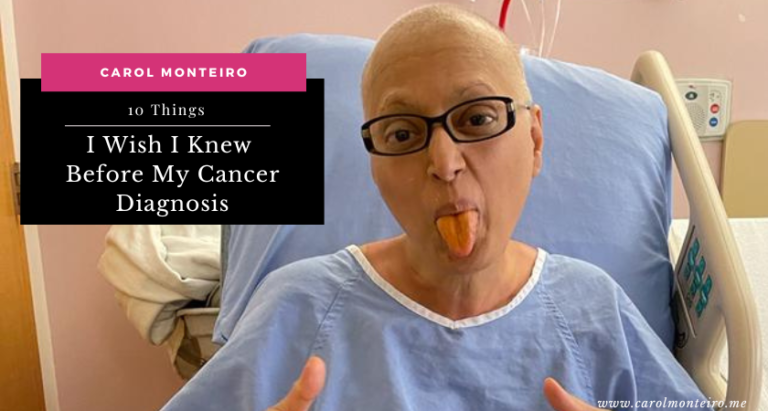
Facing a cancer diagnosis is life-changing and most people do not expect to get it. However, when they do it can be an overwhelming and emotional experience.
No human wakes up each day wanting to be unwell, however there are some deceases that most of us identify to be normal as we see it all around us. I am not talking about colds and flu here. Diabites, Cholesterol, Arthritis, Dementia, Alzheimers are just a few that at one point were common ailments.
Recently cancer seems to have joined this category. Now I am not sure if I am more aware of those suffering from cancer because I have had a cancer diagnosis or if truly it is on the rise.
Statistics say that cancer incidence in Canada are on the rise and in the future nearly 2 in 5 Canadians are expected to develop cancer during their lifetime.
In 2021, I happened to be just one of those. Having lived a fairly healthy lifestyle and with no physical ailments, I received my diagnosis in June of 2021.
Just like many I was overwhelmed, sad, anxious and had a myriad of emotions flowing through me as I played out every scenario in my head — as a patient, a mother, a wife, a daughter, a sister, a friend and a co-worker. How was I going to navigate all of these relationships in a manner that will support me.
But before worrying about the world, I knew I had to make ME a priority and did just that.
I decided to keep my diagnosis private to a close network till me and my family was strong enough to have a conversation without breaking down.
In this article I want to share with you a few insights I wish I had known that may help you make the initial days of a diagnosis a bit easier on you and your loved ones.
1. Get Multiple Opinions
Being in Canada, we have social medicine, so I had the benefit of moving my treatment to a specialty hospital. Depending on where you are remember, oncologists can differ on treatment recommendations, so getting a second (or third ) opinion may reveal new options, while educating you on your situation. This will help you make well informed decisions and confirm the next steps in your treatment plan.
Different hospitals or cancer centers may have different protocols or approaches including more advanced treatments and clinical trials. Trials can offer access to new treatments and are often well-supported by dedicated care teams. They are worth considering if standard treatments are limited.
So ask a ton of questions and take your time to synthesize the information.
2. Prepare For Hard Conversations
You will eventually have to share the news, so make sure you are fully ready to handle the emotions you will receive when you reveal the news. Your employer will porbably have to be the first to know, however after that you get to decide.
I took my time before sharing it with my extended family. My initial group was my immediate family and a close group of friend who uplifted me and filled my cup. They supported me in a way that empowered me and my family. You want to keep anyone who will deplete you of your energy away. Rememeber you are coping with a hard diagnosis and are yourself struggling to keep your head over water. The last thing you want is a pity party and people who will feel sorry for you.
Make you and your immediate loved ones your priority.
3. Organize A Support Network Early
Identify your support group. The emotional impact of a cancer diagnosis can be as challenging as the physical one. It’s easier to handle appointments, paperwork and everyday tasks with help. Identify people who can support you, with either taking you to appointments or helping you with household tasks.
For me it was my husband, my two kids and a group of 5 girl friends and their spouses. I wanted to limit the exposure to only positive and supporting energy.
I drew my boundaries around who I would share with my news. I know misery attracts misery and I wanted to keep my environment sacred and did not compromise on it.
You get to decide which healing energy you allow into your world
4. Mental Health Support is Crucial
Therapy, support groups, or even talking with other cancer survivors can be immensely helpful. Many cancer centers have dedicated counselors. My medical system connected me with resources and support groups to have my questions answered. Once I had a treatment plan I asked to speak to others who had been through it so I could ask them any questions I had. So build and leverage your network to support you.
The emotional impact of a cancer diagnosis can be challenging as the physical one. Therapy, support groups, or even talking with other cancer patients can be immensely helpful.
A healthy mental state will help you navigate the diagnosis with grace
5. Research Financial Assistance and Rights
Cancer treatment can be expensive, even if you have insurance. Most cancer centers will guide you through what you can anticipate in terms of overheads. They can provide you with resources and guide to make a plan. Make it a point to understand your benefits and rights at work such as medical leave and protections.
Educate yourself on any coverages your cards or policies have that you can leverage.
Leverage any contingency planning you have in place to support you in your journey.
6. Treatments Paths Are Not Always Linear
What works for one may not work for another. Treatment plans may change over time based on your body’s response to treatments. Flexibility and patience are key as your medical team evaluates and closely monitors you.
Trusting your medical team is imperative. That is why what you have to do your due diligence at the start before starting treatment. Now many do not have the privilege of time on their side and so taking a few opinions at the start will instill the confidence you need in your medical team.
Your doctors want the best for you and will present you with options as you go along your treatment. That is why you need that support to help you with decisions.
You are unique and so is your journey, embrace it!
7. Your Lifestyle May Need Tweaks and Adjustments
When you receive a cancer diagnosis, your world will seem to flip upside down. You will have to recalibrate your priorities and schedules. It is a lot when also navigating all the emotions that go with a diagnosis.
You will start feeling things you did not feel before, you will start to notice side effects you previously ignored, you will start questioning what you did and what caused this along with a plethora of questions.
You already have a diagnosis. It cannot be undone. What you can do is make it easier on yourself to cope with the effects of it.
You will need to operate with the physical stamina you have, change eating habits. Create, adapt and prepare for routines that will fit your energy levels, and consider anti-inflammatory or immune-boosting foods to support the healing process. You will need to incorporate meditation and relaxation practices to eliminate stress.
You are not reversing the diagnosis, you’re building resilience to embrace it!
8. Prepare of side Effects But Know They’re Manageable
Every cancer is different, however what is more different is how you respond to the treatments.
Treatment side effects vary widely, including fatigue, nausea, and cognitive effects (“chemo brain”), pain, lack of sleep, ulcers etc. Preparing for them can make a difference. Many treatments exist for side effect management, so don’t hesitate to ask your medical team for help.
Remember not to use another’s experience to determine your’s!
9. Document Everything
You will forget!
With the diagnosis you will also be inundated with appointments, protocols, do and don’t and a sleu of other things you will need to remember, so make notes, take pictures, make video/audio messages to yourself.
You will need to track appointment, follow-up, bloodwork, treatments, medications and know how you feel daily. Become aware of what you eat and how it affects you, what foods do not sit well and which trigger an unwanted response.
You have a cancer diagnosis… so nothing anymore is normal. Your physical or digital record will help you and your doctors understand your journey and make better decisions to support you.
Alleviate the pressure of remembering with a digital/physical journal
10. Find Joy in Small Things and Moments
You may be going through the hardest phase of your life. Give yourself some grace. Cancer brings a shift in perspective. You will want another chance at life or may have received one. Regardless many develop and pursue their passions as a healthy distraction.
Find comfort in nature, hobbies, family, or simply finding joy in small victories and peaceful moments.
Do things that give you joy and that keep your mind off worry. Anything that will bring a smile to your face.
I had to put my dog down (more in another article) so we brought a tiny pup home that shifted the energy of the home.
Curate experiences to make this journey one of joy and not pain!
Just Know You Got This!
Found this helpful?
Leave a Comment Below




